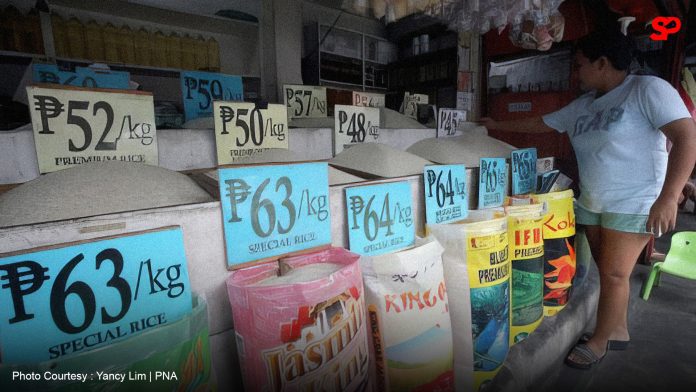MANILA – A House of Representatives committee flagged on Tuesday potential collusion among major rice importers and traders to manipulate rice prices despite an oversupply and reduced import tariffs under Executive Order (EO) 62.
During the hearing of the House “Murang Pagkain Supercommittee,” lead chair, Albay Rep. Joey Salceda, presented the mega panel’s initial findings, which showed speculative practices and potential collusion in the rice importation sector that were driving up retail prices.
“The committee focused on top importers because there were clear signs of speculation in the rice import market, such as swelling commercial inventories, delays in withdrawals by importers, and imports surpassing USDA (United States Department of Agriculture) projections,” Salceda said.
The panel identified the top 10 importers controlling 36 percent of total rice imports, pointing to significant market concentration.
The top rice importers were identified as Bly Agri Venture Trading, Atara Marketing, Inc., Orison Free Enterprise, Inc., Macman Rice and Corn Trading, King B Company, Sodatrade Corp., Lucky Buy and Sell, Vitram Marketing, Inc., Nan Stu Agri Traders, and RBS Universal Grains Traders Corp.
Companies such as RBS Universal Grains Traders Corp. and Sodatrade Corp. were noted for shared ownership structures, potentially enabling coordinated pricing strategies and anti-competitive practices, according to the panel’s findings.
Marikina Rep. Stella Quimbo, citing Philippine Statistics Authority data, noted that the demand-supply ratio fell from 82.5 percent in 2023 to 69 percent in 2024, reflecting an oversupply.
“May excess supply. Kung ano ang kailangan natin na bigas ay mas mababa sa kung ano ang meron tayo. At kapag may excess supply, dapat bumaba ang presyo. Pero bakit hindi bumababa (There is excess supply. The rice we need is less than what we have. With an excess supply, prices should go down. But why haven’t they)?” Quimbo said.
She further cited government data that showed rice inventories reaching 2.5 million metric tons as of November 1, a 25 percent increase year on year.
Domestic rice prices, however, have risen from PHP51 per kg. to PHP55.30 per kg. over the past year, even as the landed price of imported rice dropped by PHP11 per kg.
She said the gap between landed and domestic prices widened drastically from PHP3 per kg. in 2023 to PHP20 per kg. in 2024.
Quimbo described the situation as a clear case of collusion.
She claimed that importers and traders collectively profited a staggering PHP13 billion after rice import tariffs were slashed from 35 percent to 15 percent under EO 62.
Instead of passing on the savings to consumers, she said, the group hoarded stocks to artificially drive rice prices up.
“Nasa kamay ‘yan ng importers at traders na yumaman po ng PHP13 billion dahil sa pagbaba ng taripa. Pero wini-withhold nila ang rice stocks sa ngayon (It is in the hands of importers and traders, who got rich by about PHP13 billion due to the reduced tariffs. They are withholding rice stocks),” Quimbo said.
Tax evasion
Salceda, meanwhile, urged the Bureau of Internal Revenue (BIR) to investigate tax filings of top rice importers, noting discrepancies between their billion-peso imports and reported tax payments.
“Congress cannot request tax filings. They are protected by Section 270 of the Tax Code. But the BIR can verify their own assessments and records. These top importers are importing in the billions. So, their tax payments should reflect that,” he said.
Salceda said tax evasion is a predicate offense that allows the Anti-Money Laundering Council to investigate transactions further. (PNA)

